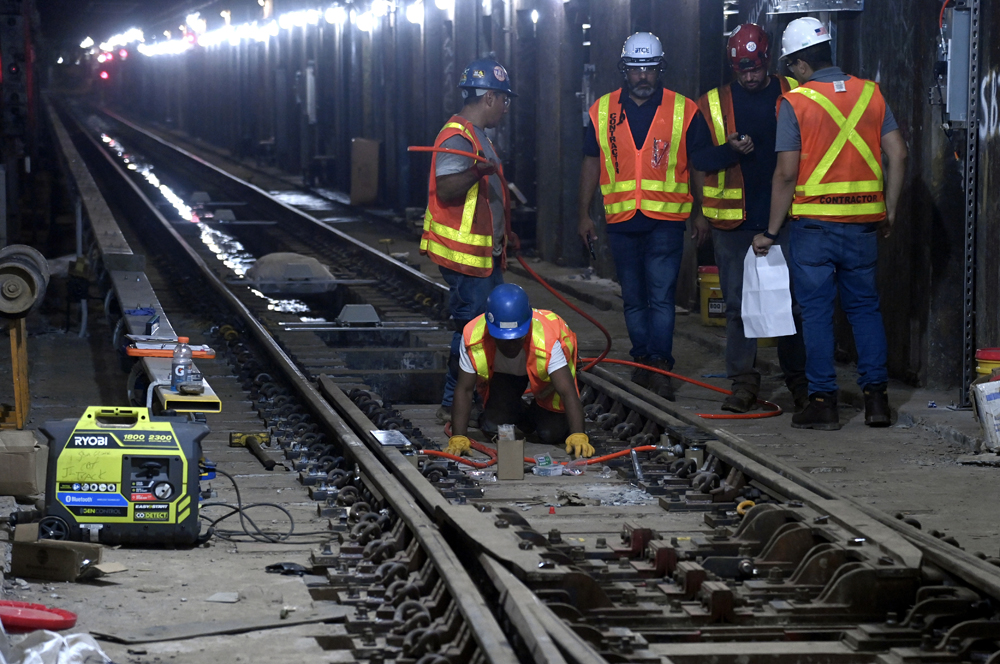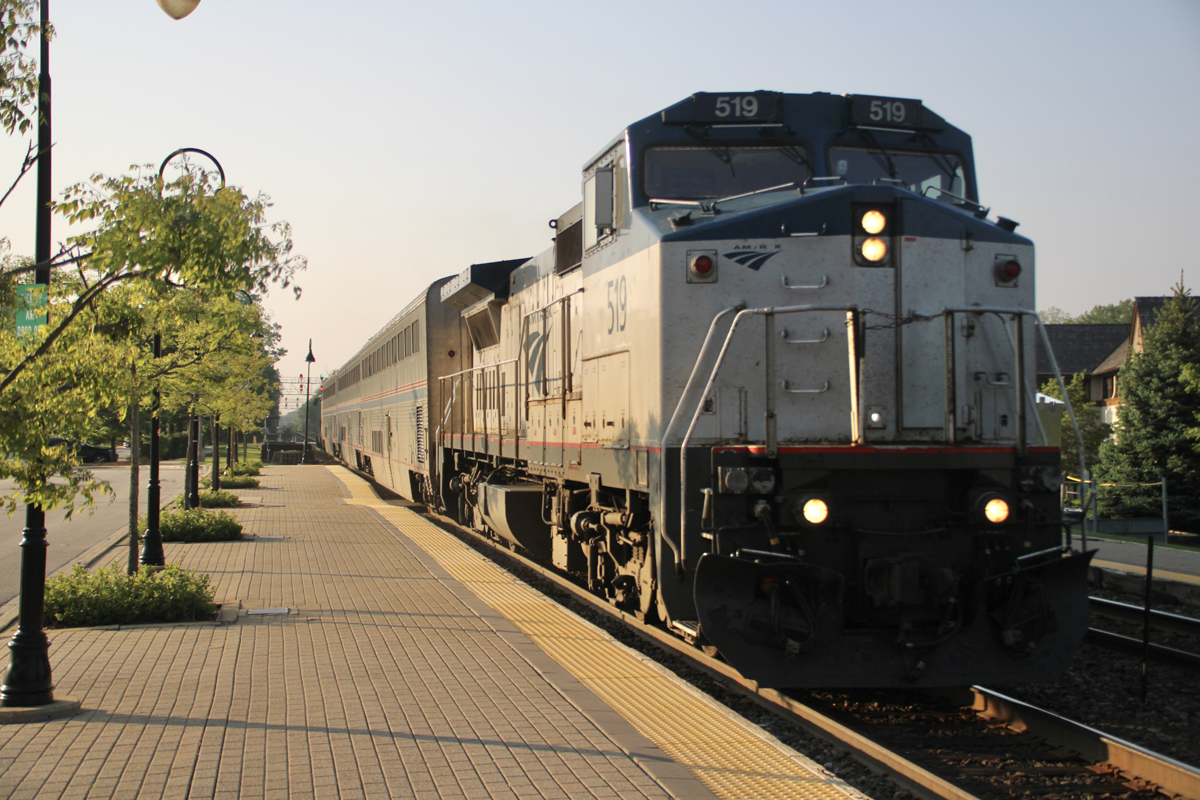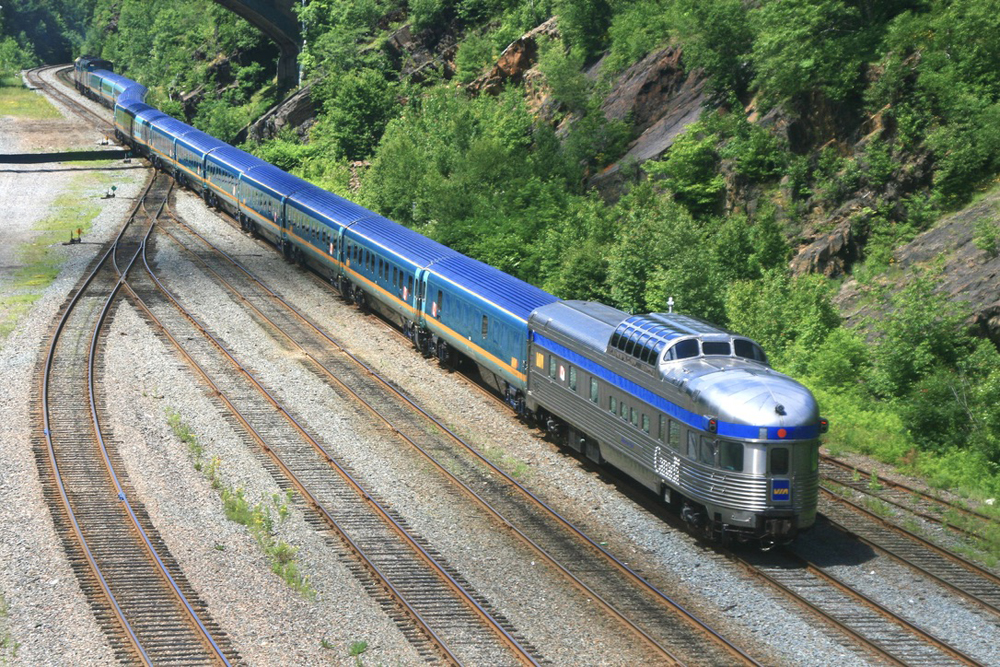
NEW YORK — The Federal Transit Administration this week issued a special directive ordering the Metropolitan Transportation Authority to address “an escalating pattern of safety incidents” regarding workers in the New York subway system, citing 38 near-miss incidents in 2023 in addition to a worker fatality in November 2023 and an incident involving a serious worker injury this June.
The 38 near-miss incidents represented a 58% increase over the previous year, when there were 24.
The FTA also issued an accompanying directive to New York’s Public Transportation Safety Board regarding oversight of New York City Transit, the MTA division including subway operations.
Both were released on Wednesday, Aug. 14; both say the FTA has determined “that a combination of unsafe conditions and practices exists such that there is a substantial risk of death or personal injury.” The directive for the MTA includes a pair of findings and requires four actions in response; the report for the PTSB includes three findings and requires six actions.
An FTA audit reported shortcomings with the subway system’s Roadway Worker Protection program, the safety measures for those performing track work, including establishment of work zones and flagging rules. It said that half of the 38 near-miss incidents in 2023 involved one or more workers failing to follow established flagging rules. Other incidents involved improper communications and radio use, improper set up of protection or access to the right-of-way, lack of supervision, failure to follow protocols in areas with communications-based train control, and inattention by train operators.
To address its finding that NYC Transit has not exercised Safety Risk Management provisions in its safety plan to address changing risk to workers, the FTA is requiring the subway agency to complete an assessment of its Roadway Worker Protection program within 60 days. Within 30 days of FTA approval of that assessment, NYC Transit must submit a mitigation plan to address the issues identified in that assessment.
To address its finding that NYC Transit must take additional action to ensure compliance with and sufficiency of the Roadway Worker Protection program, NYC Transit must began weekly compliance monitoring by management within 10 days of the directive’s issuance. It must also provide a report to the FTA within 100 days reporting the results of that monitoring; once that report is approved, reports will be submitted monthly.
The MTA disputed the findings and said it plans to appeal, the local news site The City reports. In a letter to the FTA, interim New York City Transit President Demetrius Crichlow wrote, “we strongly dispute FTA’s view that NYCT has somehow been negligent when it comes to addressing the safety of track workers, one of our most essential priorities. The agency has extensive safety protocols covering the more than 1.5 million work tours that take place along the right-of-way during active service in our 24/7 subway system.”
John Samuelsen, president of the Transport Workers Union, told The City the findings affirmed what his union has been saying for years: “There’s a constant tension between on-time train performance and worker safety and that pressure has increased dramatically.”
The FTA’s audit was launched in response to the Nov. 29, 2023, death of Hiliarian Joseph, 57, who was working as a flagger when he was struck by a subway train near the 34th Street-Herald Square station [see “NTSB to investigate death …,” Trains News Wire, Nov. 30, 2023]. Another flagger was seriously injured when struck by an out-of-service train in Brooklyn in June [see “New York subway track worker in intensive care …,” News Wire, June 6, 2024].
The FTA’s directive regarding the Public Transportation Safety Board calls on the agency to expand its oversight activities to oversee the Roadway Worker Safety program, to oversee responses to near-misses and other safety events, and to oversee NYC Transit Roadway Worker Safety training. It requires a series of reports and plans for mitigation similar to those requested for New York City Transit, and requires the PTSB to conduct an independent audit of the NYC Transit training program, with NYC Transit required to develop plans to address the findings of that audit.













